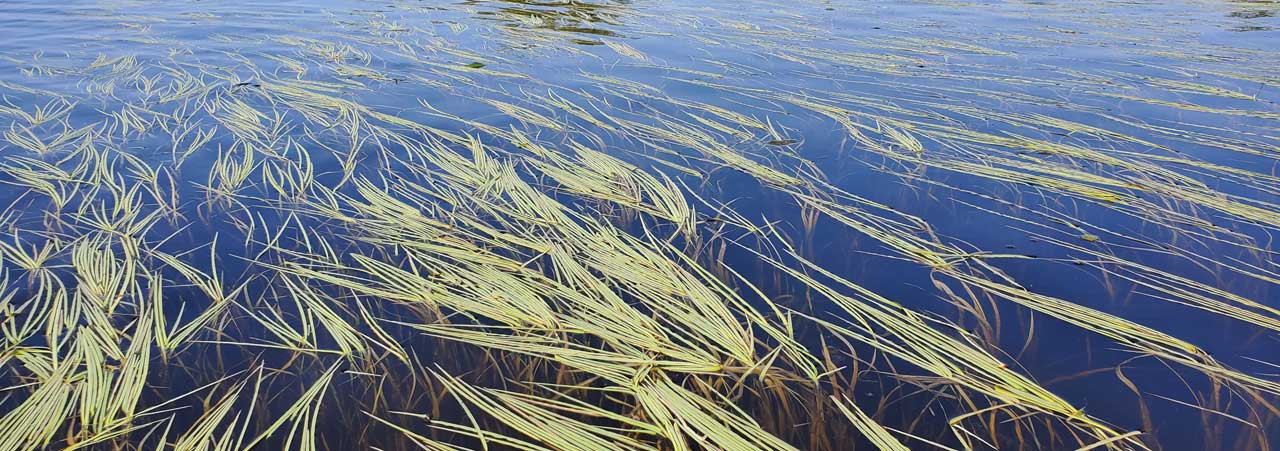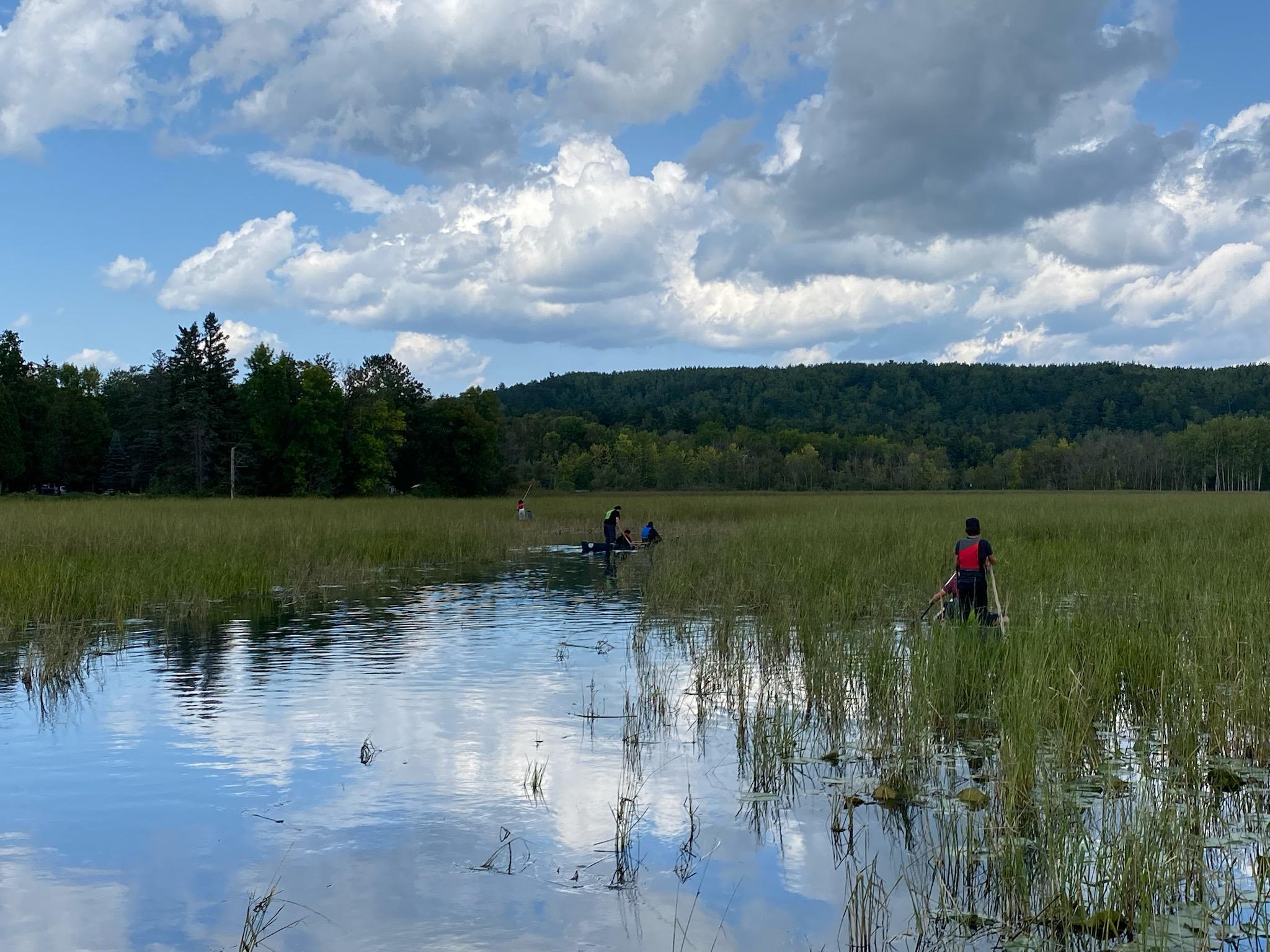Home » Indigenous Food Systems Resilience » Wild Rice Restoration and Research
Wild Rice Restoration and Research

Wild Rice Restoration and Research
What We Do
Manoomin is the word for wild rice in the Ojibwe language. Manoomin is an aquatic plant native to the Great Lakes region that is essential to cultural lifeways for Tribes, creates habitat for wildlife, and provides nutritious food. The Manoomin Team is working in multiple areas of the state supporting Tribal partners’ research, restoration, and outreach needs.
Tribal Partners
- Manoomin Restoration Partnership
- Fond du Lac Band of Lake Superior Chippewa
- Great Lakes Indian Fish & Wildlife Commission
- 1854 Treaty Authority
- Menominee Department of Agriculture and Food Systems
Understanding the Health of Restored Manoomin in the St. Louis River Estuary
We are working with our partners to develop a research and outreach plan for wild rice restoration in chi-gami ziibi, the St. Louis River Estuary. The Manoomin Restoration Partnership has been conducting restoration on wild rice in this region since 2013. We are working together to address Tribal community concerns of how contaminants in the St. Louis River Estuary affect the health of restored manoomin and those who eat it. Our research is focused on heavy metal and PFAS accumulation in wild rice.
In 2024 and 2025, we hosted a wild rice camp at the St. Louis River Estuary for UW Superior students and Tribal community members in partnership with the UW Superior Indigenous Cultures Resource Center.
UW-Green Bay Wild Rice Restoration
In the Green Bay area, we are working to extend existing wild rice outreach and education programs with Green Bay West Shore education and restoration collaboration. UW-Green Bay has been leading a wild rice re-establishment and monitoring project in the Bay of Green Bay since 2016. Through the RPI Project, the group is working to expand connections with Tribal nations and communities.
The Manoomin Team is also supporting the Wild Rice in the Classroom program, which helps K-12 educators grow wild rice at schools, by supporting building connections with Tribal Nations and organizations to expand programming about the cultural importance of wild rice.



